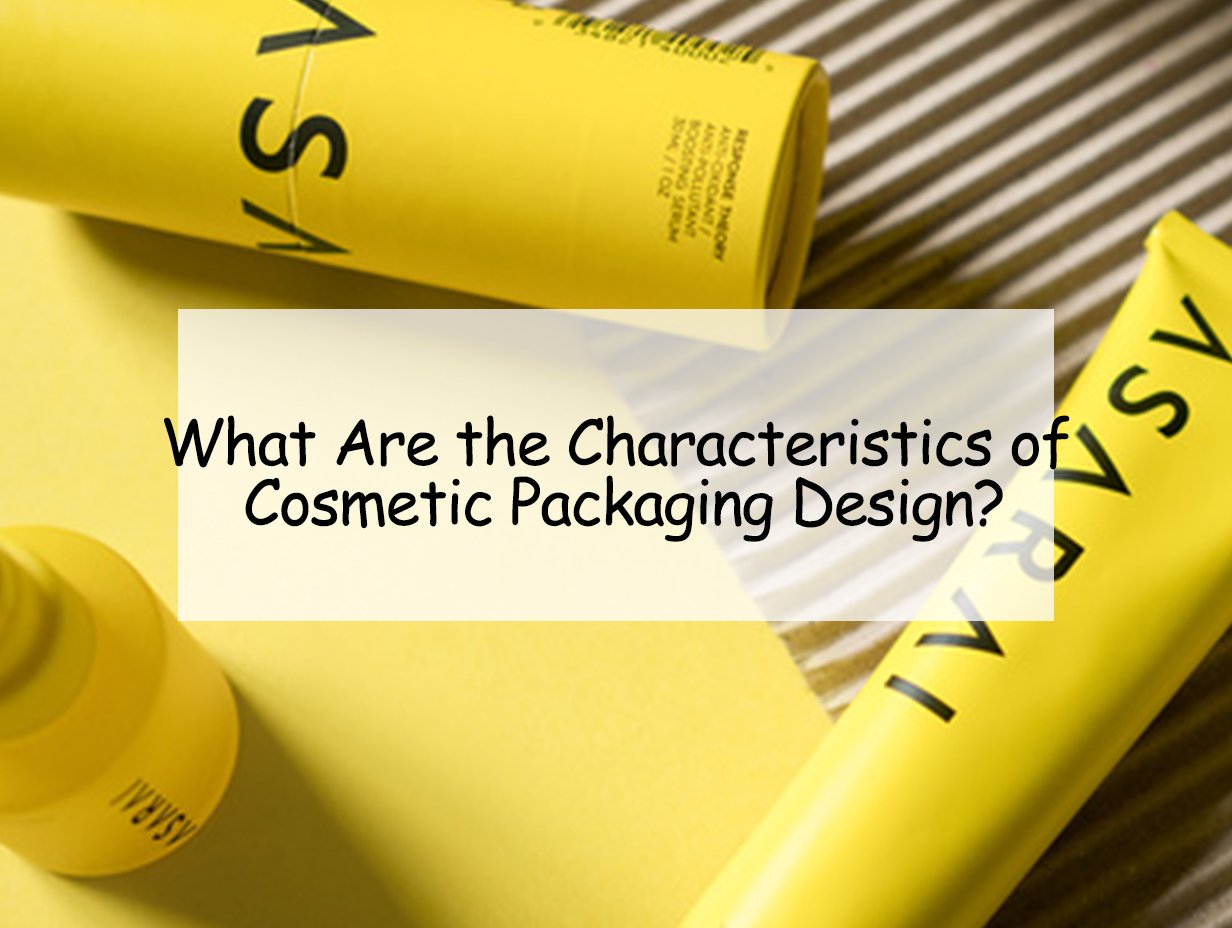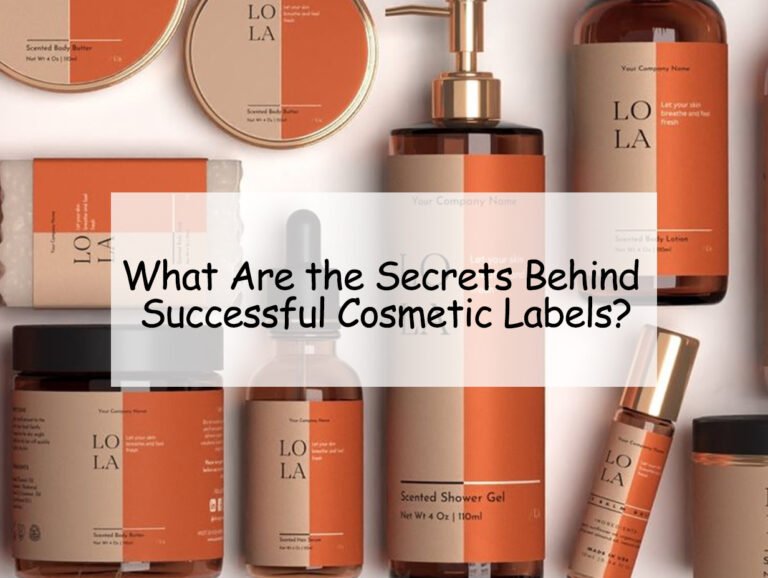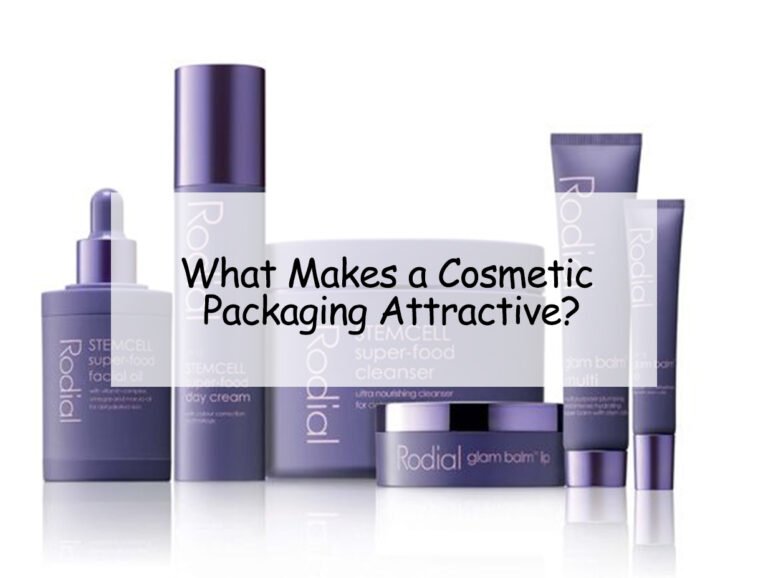Struggling to make your cosmetic brand stand out on crowded shelves? Your packaging is your first opportunity to capture attention and convey the essence of your brand. In a competitive market, the right cosmetic packaging can make the difference between a consumer’s interest and a missed sale. This article will guide you through the critical traits of effective packaging design that balances visual appeal with functionality.
Cosmetic packaging design goes beyond looks. It must combine aesthetic appeal, practicality, and sustainability to create a compelling consumer experience while protecting the product inside.
Read on to discover how optimizing packaging can increase both product visibility and customer loyalty!
Aesthetic Appeal: Creating an Eye-Catching Design?
Struggling to stand out in a crowded market? Unattractive packaging can bury your product. Creating visually appealing cosmetic packaging is essential to capture customer attention and differentiate your brand.
Visually appealing cosmetic packaging attracts customers by standing out in a saturated market. Effective designs capture attention and communicate the brand’s essence, enhancing product visibility and consumer engagement.
](https://jinlinpackaging.com/wp-content/uploads/2024/11/Aesthetic-Appeal-Creating-an-Eye-Catching-Design.jpg)
The Importance of Color Psychology and Typography
Choosing the right colors and fonts plays a significant role in how your packaging is perceived. Color psychology in packaging1 can evoke emotions and influence purchasing decisions. For instance, pastel colors often convey softness and femininity, while bold colors can suggest strength and modernity. Typography should be clear and align with your brand's personality. A sleek, modern font might suit a high-end brand, whereas a playful font could be perfect for a youthful product line.
Understanding Color Psychology
| Color | Psychological Effect | Common Associations |
|---|---|---|
| Red | Excitement, passion | Energy, urgency |
| Blue | Trust, calmness | Reliability, serenity |
| Green | Nature, health | Eco-friendly, organic |
| Black | Luxury, sophistication | Elegance, exclusivity |
| Pink | Femininity, softness | Beauty, romance |
Balancing Creativity and Clarity
While creativity is essential, clarity should never be sacrificed. Your packaging should be unique and stand out, but it must also clearly convey what the product is and its benefits. Striking the right balance ensures that your packaging is both attractive and informative. Overly complex designs can confuse consumers, while overly simplistic designs might not capture attention. Aim for a harmonious blend where creativity enhances clarity.
Functionality: Packaging That Works?
Struggling with unreliable packaging? Frustrated customers and damaged products hurt your brand. Implementing functional cosmetic packaging2 ensures ease of use and product protection, enhancing customer satisfaction.
Functional cosmetic packaging is essential for user-friendliness and product protection. It prevents damage during transit, simplifies usage, and improves overall customer experience, ensuring products reach consumers in perfect condition.
](https://jinlinpackaging.com/wp-content/uploads/2024/11/Functionality-Packaging-That-Works.jpg)
Ease of Use and Ergonomic Designs
Packaging should be easy to open and use. Consider features like pumps for lotions or squeezable tubes for lip gloss. These design elements make the product more accessible and convenient for the user. Accessibility also includes designing packaging that is easy to handle, especially for consumers with limited dexterity. Intuitive designs reduce the learning curve and enhance the overall user experience.
Durability and Recyclable Materials
The packaging must protect the product from damage. Using high-quality materials ensures that the contents remain safe during shipping and handling. Durable packaging prevents leaks, breaks, and other issues that could harm the product or deter customers. Opting for recyclable or eco-friendly packaging practices3 can also boost your brand image.
| Feature | Importance |
|---|---|
| Ease of Use | Enhances user satisfaction |
| Durability | Protects product integrity |
| Material Choice | Influences sustainability and feel |
| Size and Shape | Affects storage and display |
Innovative Functional Features
Incorporating innovative features can set your packaging apart from competitors. Think about refillable containers or multi-functional designs that offer added value to the consumer. For example, refillable cosmetic containers4 reduce waste and appeal to eco-conscious consumers.
Sustainability: Eco-Friendly Packaging Options?
Worried about your packaging harming the environment? Growing consumer demand for eco-friendly products intensifies the challenge. Adopting eco-friendly packaging practices offers a solution to minimize your environmental footprint.
Sustainable packaging utilizes eco-friendly materials and practices to reduce environmental impact. It appeals to environmentally conscious consumers, enhances brand reputation, and differentiates your products in a competitive market.
](https://jinlinpackaging.com/wp-content/uploads/2024/11/Sustainability-Eco-Friendly-Packaging-Options.jpg)
Choosing Sustainable Materials
Opt for materials that are recyclable, biodegradable, or made from renewable resources. This not only helps the environment but also aligns with consumer values. Glass, bamboo, or recycled paper can add a unique aesthetic while reducing waste. Minimalistic packaging designs can further lower production costs and material usage, making minimalistic packaging design5 a viable strategy.
Reducing Packaging Waste
Design packaging that uses minimal materials without compromising functionality. Efficient use of resources can lower costs and reduce waste. Simple, streamlined packaging not only benefits the environment but also appeals to consumers who prefer minimalistic designs.
| Sustainable Practices | Benefits |
|---|---|
| Recyclable Materials | Reduces landfill waste |
| Biodegradable Options | Minimizes environmental impact |
| Minimalist Design | Lowers production costs and waste |
| Refillable Containers | Encourages reuse and reduces waste |
Communicating Sustainability
Clearly communicate your sustainability efforts on the packaging. Use labels and symbols to inform consumers about the eco-friendly aspects of your packaging. Transparency about your sustainable practices builds trust and can influence purchasing decisions.
Brand Identity: Reflecting Your Brand’s Personality?
Is your brand getting lost in the crowd? Inconsistent packaging confuses customers. Ensuring your packaging reflects your brand’s identity strengthens recognition and fosters loyalty.
Consistent branding in packaging aligns with your brand’s identity and values, enhancing recognition and building customer loyalty. It serves as a visual representation that connects with your audience and differentiates your products in the market.
](https://jinlinpackaging.com/wp-content/uploads/2024/11/Brand-Identity-Reflecting-Your-Brands-Personality.jpg)
Consistent Visual Elements
Use consistent colors, logos, and design motifs that align with your brand identity. Maintaining brand identity in packaging6 helps consumers recognize your products easily. For example, if your brand uses a specific shade of blue, incorporate it across all packaging to create a unified look.
Storytelling Through Design
Incorporate elements that tell your brand's story. Brand storytelling through packaging7 can include illustrating the origin of your ingredients or your company’s mission. This approach creates a deeper connection with your audience, making the product more relatable and memorable.
| Branding Element | Purpose |
|---|---|
| Logo | Identifies the brand |
| Color Scheme | Evokes brand emotions |
| Typography | Reflects brand personality |
| Design Motifs | Enhances brand storytelling |
Personalizing the Experience
Add personalized touches to your packaging, such as custom labels or unique designs, to make each product feel special to the consumer. These details enhance the unboxing experience and encourage repeat purchases.
Protection: Preserving Product Integrity?
Worried about damaged products and unhappy customers? Ineffective packaging compromises product safety. Implementing protective measures ensures your cosmetics remain intact and customers stay satisfied.
Protective packaging ensures cosmetic products remain safe and intact throughout the supply chain. By safeguarding quality from production to the end user, it enhances customer satisfaction and maintains product integrity.
](https://jinlinpackaging.com/wp-content/uploads/2024/11/Protection-Preserving-Product-Integrity.jpg)
Material Selection for Protection
Choose materials that provide adequate protection for your products. Glass containers offer excellent protection for certain cosmetics, while plastic might be better for others. The material should shield the product from environmental factors like light, moisture, and temperature changes.
Structural Design for Stability
The shape and structure of your packaging should prevent the product from moving around during transit. A well-designed structure reduces the risk of leaks or breakage. Internal supports or compartments can keep items stable. For additional safety, tamper-evident seals or air cushions can be integrated.
| Protection Aspect | Key Considerations |
|---|---|
| Material Choice | Ensures product safety and integrity |
| Structural Design | Prevents movement and damage |
| Sealing Mechanisms | Maintains product freshness |
| Cushioning Elements | Adds extra protection as needed |
Testing for Durability
Conduct thorough testing to ensure that your packaging withstands temperature changes and rough handling without compromising the product. Rigorous testing helps identify weaknesses in design and materials, allowing for improvements that maintain consumer trust.
Consumer Experience: Enhancing Interaction?
Struggling to build customer loyalty? Poor packaging can frustrate users and deter repeat business. Thoughtful packaging design enhances the consumer experience, fostering satisfaction and long-term loyalty.
Thoughtful packaging design significantly enhances the consumer experience by improving usability and aesthetic appeal. This leads to increased customer satisfaction and loyalty, encouraging repeat purchases and strengthening brand relationships.
](https://jinlinpackaging.com/wp-content/uploads/2024/11/Consumer-Experience-Enhancing-Interaction.jpg)
User-Friendly Features
Incorporate features that make using the product easier, such as ergonomic shapes or intuitive opening mechanisms. Enhancing consumer loyalty through packaging8 includes small details like pump dispensers or flip-top caps that significantly improve the user experience.
Visual and Tactile Appeal
The look and feel of the packaging contribute to the sensory experience. High-quality materials and attractive designs can make the product more appealing. Textured finishes or embossed logos can add a premium feel, while vibrant colors capture attention on retail shelves.
| Experience Factor | Enhancement Strategy |
|---|---|
| Ease of Use | Ergonomic designs, intuitive features |
| Sensory Appeal | High-quality materials, attractive design |
| Unboxing Experience | Creates a memorable first impression |
| Interaction Elements | Adds value through interactive features |
Building Emotional Connections
Packaging can evoke emotions and create a connection with the consumer. Thoughtful design elements that resonate with your audience can foster a sense of loyalty and trust, leading to repeat purchases and stronger brand advocacy.
Conclusion
Effective cosmetic packaging design combines aesthetics, functionality, and sustainability to enhance brand identity and consumer experience.
-
Learn how specific color choices can evoke certain consumer emotions and influence purchasing behavior. ↩
-
Explore strategies for ergonomic designs and material choices that safeguard products during transit and daily use. ↩
-
Understand how selecting recyclable, biodegradable, or minimalistic materials can appeal to eco-conscious consumers and reduce waste. ↩
-
Learn how refillable and reusable packaging solutions can reduce environmental impact and enhance consumer engagement. ↩
-
Find out why simpler, streamlined packaging can cut costs, reduce waste, and still catch the consumer’s eye. ↩
-
Discover how aligning packaging design with brand values fosters recognition and loyalty. ↩
-
Discover techniques for weaving brand narratives into color schemes, typography, and imagery to connect with your audience on a deeper level. ↩
-
Uncover how thoughtful packaging features can elevate consumer satisfaction, boost trust, and encourage brand advocacy. ↩



